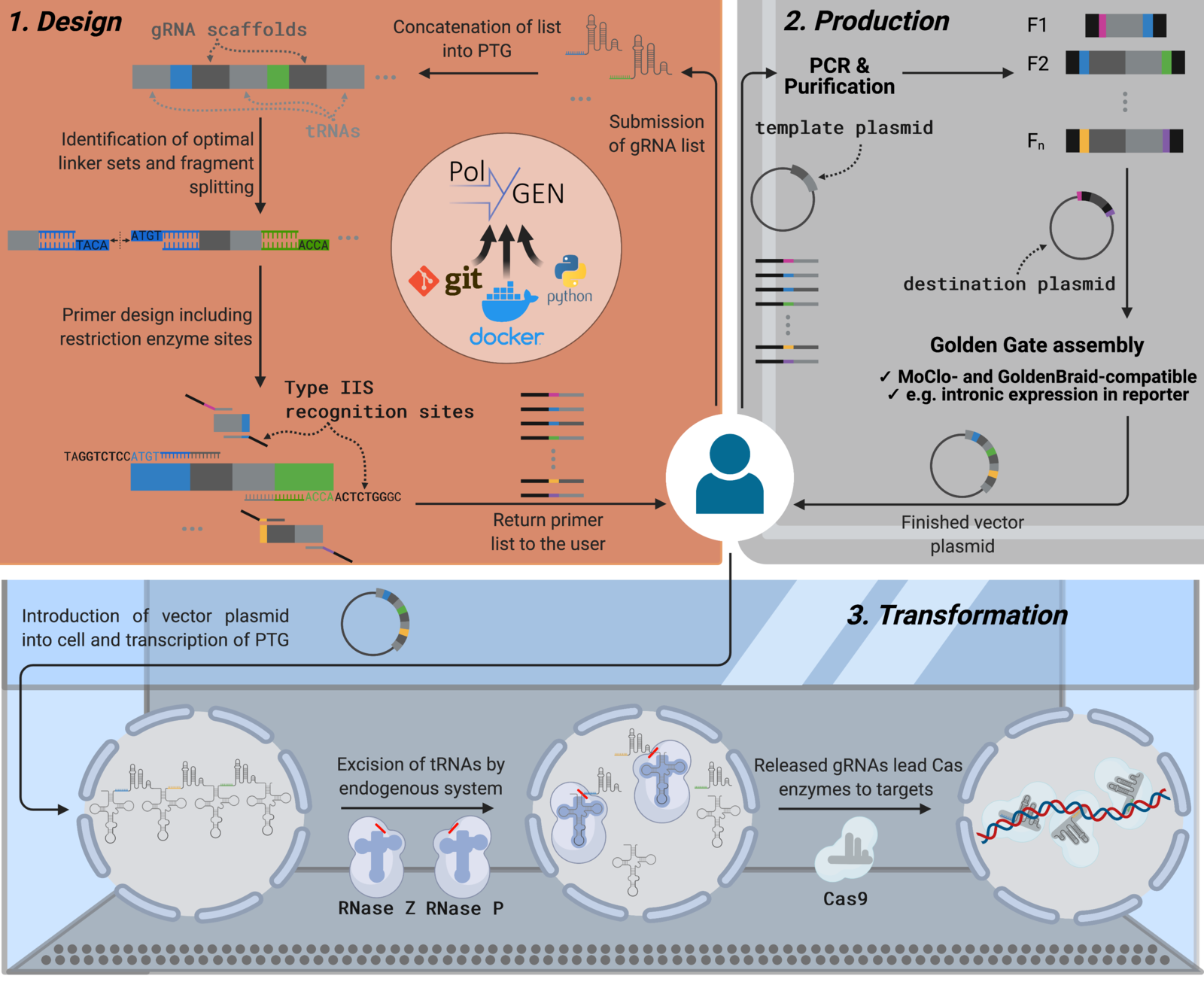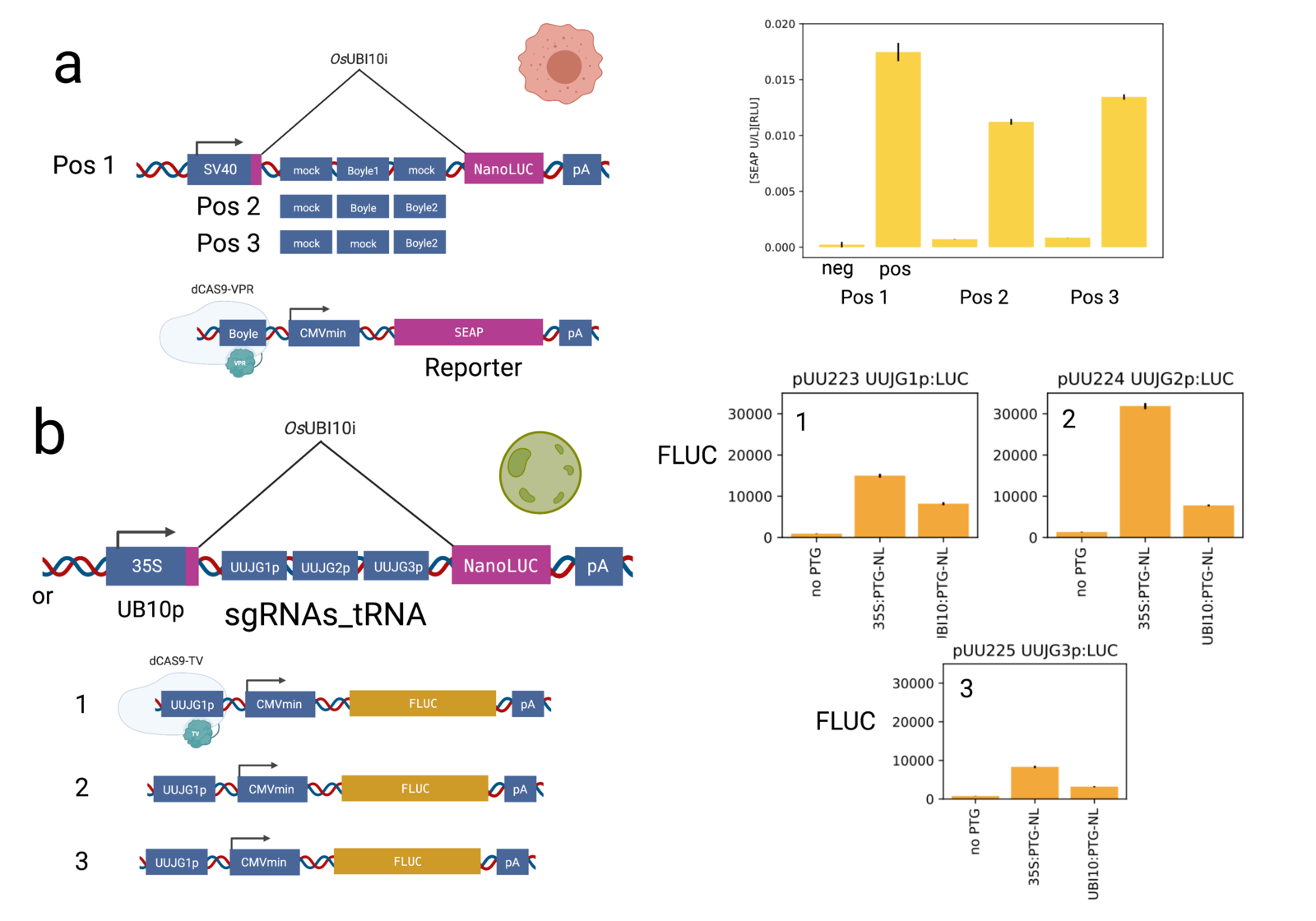Dr. Uriel Urquiza
Research Focus
Optogenetics and multiplexed CRISPR for understanding plant signalling networks
We aim in Research Area 3 to use synthetic biology tools for understanding plant signalling pathways. We are focusing on two strategies, namely developing optogenetic tools to control cellular processes at high spatio temporal resolution and implementing reconstruction biology approaches to understand signalling networks.
Plant optogenetics: to control cellular processes using light e.g. gene expression or protein activity. In particular we focus in optogenetic control of gene expression with the recently published PULSE transcriptional control system (Ochoa-Fernandez et al. 2020). We will link this system to multiplexed CRISPR with the below mentioned tools.
We are also developing the tools for linking optogenetics to multiplexed CRISPR technologies integrating biodesign automation. We developed a software called PolyGEN that automates the oligo design of multiplexed CRISPR using Pol-II promoters (Fig 1. Urquiza-Garcia et al in preparation). We performed an experimental proof of principle for PolyGEN. In mammalian cells and plant protoplasts (Fig 2). Supporting our computational developments for boosting the design speed.

Perspectives: Integrating optogenetics with multiplexed CRISPR-based tools will provide an unprecedented resolution for perturbing plant systems at the temporal, spatial and genomic scale. In combination with biodesign automation we hope to speed up significantly the deployment of optogenetic control in plants.

References:
- Ding D, …, Xie K. 2018. Engineering Introns to Express RNA Guides for Cas9- and Cpf1-Mediated Multiplex Genome Editing. Molecular Plant 11(4):542–552.
- Ochoa-Fernandez R, ..., Simon R, Zurbriggen MD. 2020. Optogenetic control of gene expression in plants in the presence of ambient white light. Nature Methods 17(7):717–725.
